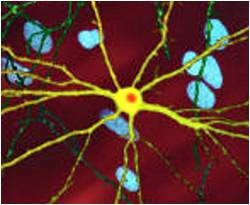The New Normal: How the definition of disease impacts enhancement
We’ve all been there. It’s exam week of your junior year of college with two papers due the day after a final. You’re a new faculty member with a semester of lectures to prepare and a lab to get started. You’re a tax accountant and it’s early April. There is simply too much to do and not enough hours in the day to get it all done while sleeping enough to keep your brain working like you need it to. In that situation, where do you stand on cognitive enhancement drugs? Most of us wouldn’t hesitate to grab a cup of coffee but what about a caffeine pill, or a friend’s Adderall? Many discussions about cognitive enhancement eventually come down to this question: where do we draw the line? Currently most of the cognitive enhancers that create unease for ethicists and the general public alike are prescription drugs that were originally meant to treat conditions recognized as out of the realm of “normal” such as diseases or deficits. Therefore, a key step in deciding where we should stand on th...

